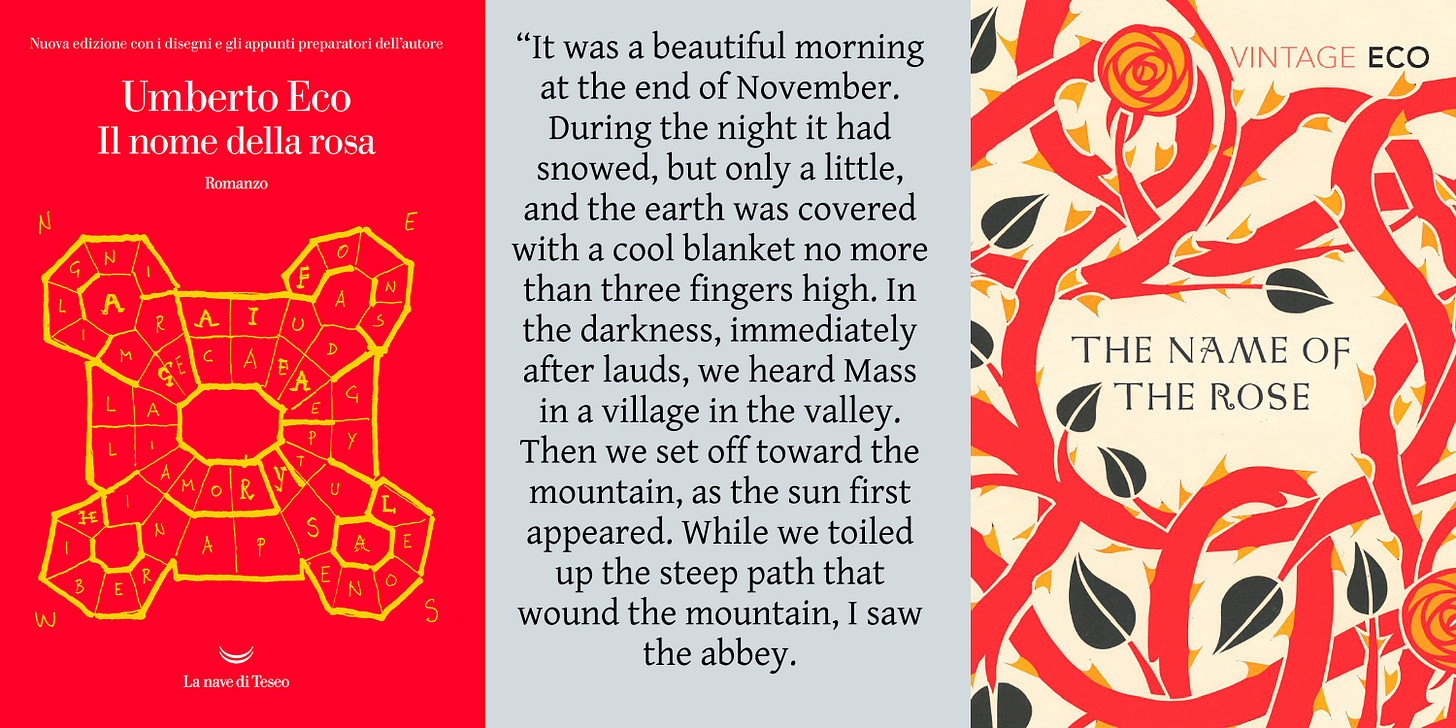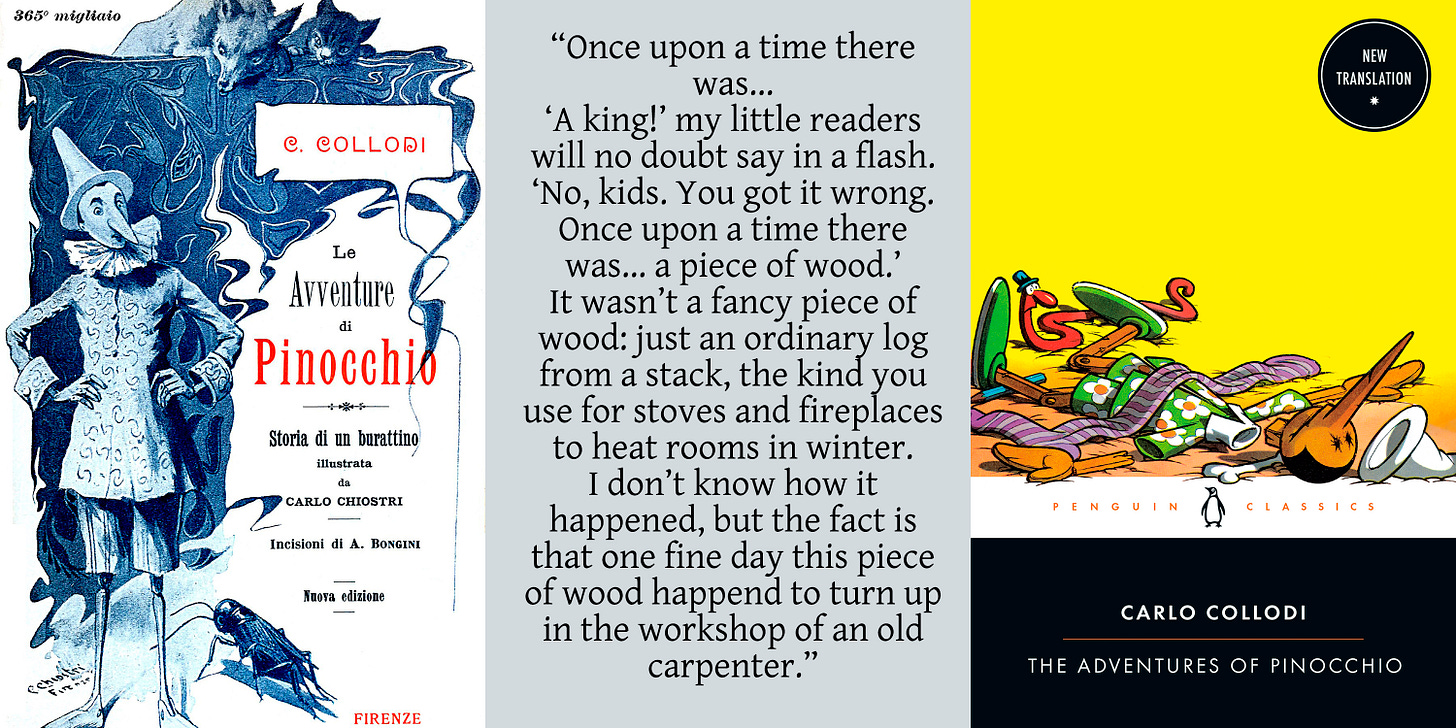Happy new year, fans of slow reading and dolce vita! If you read The Leopard with me in 2024, welcome back—and if you’re one of the many, many new subscribers, a warm Mediterranean welcome to you! Seriously, where did you all come from?
Without further ado, let me show you what I’ve been plotting and scheming for you this year. There are two books in particular that I’m looking forward to share with you: both are personal favorites, both have helped me out during strange times in my life.
Spring/Summer 2025: Arturo’s Island by Elsa Morante (1957)
Elsa Morante caught the creative bug as a child and never healed from it. At 19 she was already publishing fairy tales and short stories. In her adulthood she wrote novels, essays, poems, screenplays, and also translated books, composed soundtracks, even hosted her own radio column for a while.
Arturo's Island, her second novel, is the story of a young boy growing lonely and wild on the gorgeous Procida Island. His mother died in childbirth, his father is never home, and Arturo has tattered clothes, books full of fairy tale heroes and a whole island to host his grand adventures. Arturo is deliriously happy, or so he thinks. Until, one day, he grows up.
Fall/Winter 2025: The Name of the Rose by Umberto Eco (1980)
Eco was arguably the greatest intellectual that Italy produced in the 20th century, a philosopher, historian and semiotician that amused himself by also writing fiction. His novels are not easy to tackle, and even his most accessible and commercial book, The Name of the Rose, is a tour de force of obscure medieval facts sparkled with complex symbols and lists and Latin. So. Much. Latin.
It’s also, at its core, a deliriously entertaining murder mystery, a big chunky whodunnit wearing a serious professor gown. It’s Sherlock and Watson as medieval monks, what’s not to love? Whether this is your first time reading Eco or you’re a long time fan, my goal is to provide all you need—from serious philosophical context to unserious badgering of characters—for a fun collective experience.
So there you have it, a warm summer book and a freezing winter book for later this year. But Ellie, you may ask, what about now?
Well. Since I’m chewing so much with these two big boys and I need time to prepare, I thought we could start smaller. After long deliberation, I’ve narrowed down two options for our first book of 2025, they’re very different in tone but both interesting and entertaining in their own way. And yes, you get to decide which one we pick!
OPTION A: One, No One, And One Hundred Thousand by Luigi Pirandello (1925)
The last novel by Nobel Prize winner Pirandello is 200 pages of pure chaos. One, No One, And One Hundred Thousand is the story of a regular guy, Moscarda, who quite by chance discovers that his nose isn’t straight, and that’s enough to send him into a full existential crisis. Turns out that the person he thought he was and the person his wife sees are two entirely different beasts, and that’s not all! What about his in-laws? What about his friends, his colleagues? Just how many Moscardas are out there living rent-free in other people’s minds, all these guys who are supposedly him that he can’t see or control? And more importantly: how can he kill them all?
OPTION B: The Adventures of Pinocchio by Carlo Collodi (1883)
Yes, a children’s book! You all know the story of Pinocchio, the puppet who dreamed to become a real boy, but have you ever read the original book? Pinocchio is many things, it’s a morality tale, it’s a deep dive in the life of the poorest people in 1800s Tuscany, it’s—once you strip off old Walt’s saccharine additions— such a weird, creepy experience. I’m especially interested in the recent Penguin Classics translation, but you’ll be able to follow along with any edition of the book.
And now it’s time to choose!
The poll will stay up for a week. If you want, write in the comments which book you chose and why, I can’t wait to hear what you think. Ciao!









Hi, Elllie. I fell in love with Italy after teaching a summerschool course in Rome recently on the philosophy of film. A slow reading of any of the works you propose would be a great joy for me. I'm sorry I missed the slow reading of the Leopard, but I did read it on my own in November, 2023, albeit quickly, and posted a superficial reflection about it here: https://robertboydskipper.substack.com/p/the-leopardgiuseppe-tomasi-di-lampedusa
Since I have taught medieval philosophy and Greek philosophy I may be able to contribute something when we get to The Name of the Rose.
Wow. Arturo’s Island by Elsa Morante — I saw someone mention it last year somewhere and then I bought it impulsively, but I’d totally forgotten about this book till now. Now excited to read it with you all.